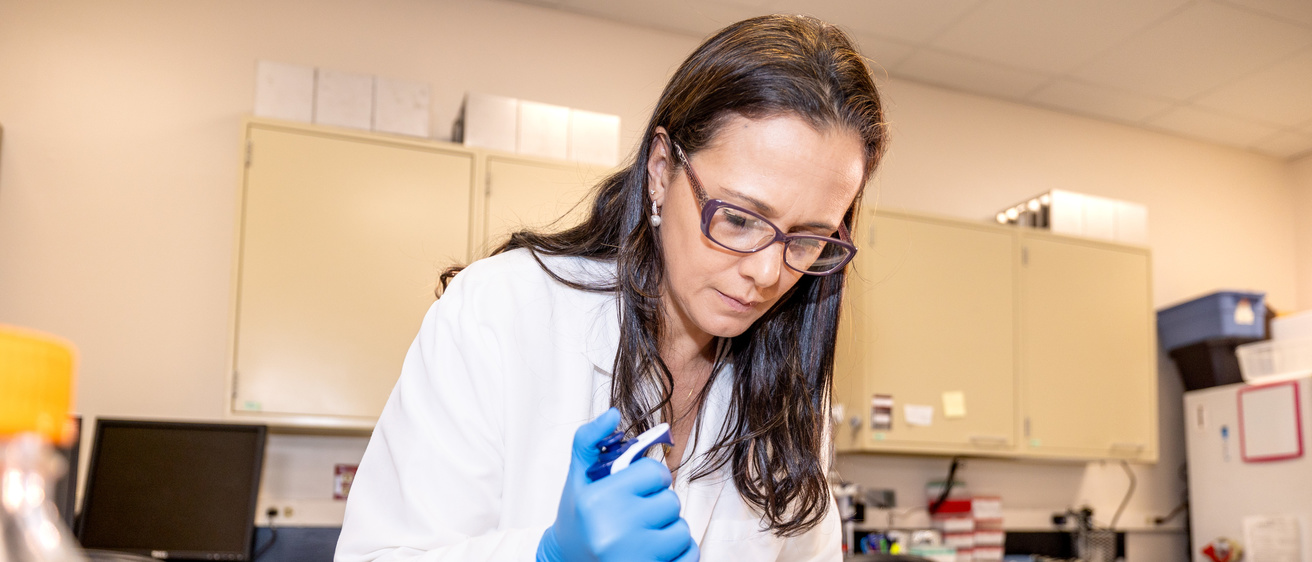
When parents dress identical twins alike, it can be nearly impossible to tell them apart. Aline Petrin, assistant professor of orthodontics at the University of Iowa, is harnessing the genetic and epigenetic sameness of identical twins to shed new light on the causes of orofacial clefts.
Instead, Petrin and her team are exploring if epigenetic factors which influence gene expression without altering the genetic code could be the root cause of discordancy between the cleft phenotypes in these twins.
Drawing from the 30 pairs of discordant identical twins, Petrin has identified DNA methylation—a biochemical reaction in which a small molecule is added to DNA—as a primary source that accounts for clefting, although the precise mechanism is still unknown.
It may be that very early environmental factors explain why one twin has clefting and the other does not. But if it is environmental, it would most likely have occurred very early on during a pregnancy during the twinning process, since the methylation profiles of twins are very similar, and most aspects of their environment are the same.
The team has also identified 40 dizygotic (fraternal) twins where one twin has orofacial clefting and the other twin does not. These twins augment the earlier research and has allowed the team to tune their examination of the epigenetic processes more carefully.
Based on their findings, Petrin and her colleagues are identifying what happens with small changes are made using CRISPR-based gene editing to manipulate DNA methylation and subsequent gene expression. This allows them to see the results of small epigenetic changes in real time and thus learn more about the types of cells involved and how they are functioning.
The future is bright for Petrin and her research, who recently accepted a position as assistant professor of orthodontics at the University of Iowa.
“Dr. Petrin is a rising star at the College of Dentistry, bringing her broad background in all aspects of human genetics research,” gushed Lina Moreno, chair and associate professor of orthodontics at Iowa and one of Petrin’s mentors.
Moreno points to Petrin’s own mentoring as one way that she is bringing her research experience to benefit Iowa students.
“In just a short amount of time, Dr. Petrin has already mentored undergraduate students, predocs and postdocs very successfully all of whom have presented their work at the national meetings with distinction,” Moreno said.
Petrin’s success at Iowa began when she met Jeff Murray, professor of pediatrics at the University of Iowa, during a research trip to Brazil, where Petrin completed her PhD. Based on that meeting, he invited Petrin to come conduct research in his laboratory in Iowa. Later, Lina Moreno, chair and associate professor of orthodontics at Iowa, began mentoring Petrin as a postdoctoral researcher.
Through that process, Petrin became involved with the training program in the Iowa Institute for Oral Health Research for doctoral students and postdoctoral researchers, which helped prepare her for the grant writing process. This process ultimately resulted in her receiving a post-doctoral training grant from the National Institute for Dental and Craniofacial Research.
Petrin also participated in the American Association for Dental, Oral, and Craniofacial Research’s MIND the Future program, which is designed to encourage and support career development from persons from underrepresented backgrounds.
Petrin is quick to express her appreciation for these opportunities and her mentors, like Moreno.
“Dr. Moreno has been wonderful and is a great clinician and scientist—she knows genetics and clefting so well, and her clinical expertise has shown me the complementary way of thinking between bench and the chair,” Petrin said.
Whether its conducting collaborative and innovative research or mentoring the next generation of oral scientists and clinicians, Petrin is making an impact.
